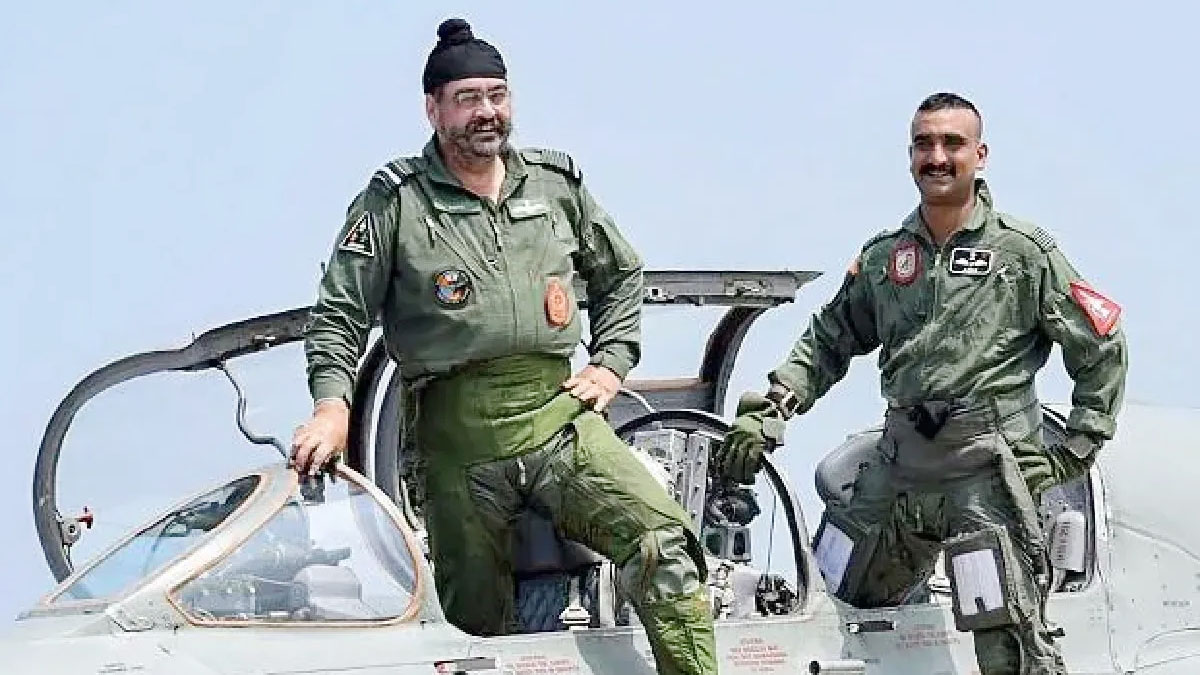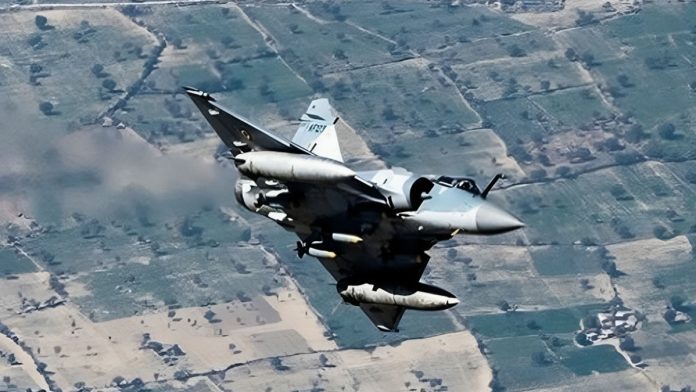Today, on February 26, 2024, India marks the fifth anniversary of the Balakot airstrike, a defining moment in the nation's history. This meticulously planned operation, executed by the Indian Air Force (IAF), stands as a testament to India's unwavering commitment to national security and its resolve to combat terrorism.
The Balakot airstrike, conducted on February 26, 2019, was a swift and calculated response to the heinous Pulwama terror attack, where over 40 Indian paramilitary personnel lost their lives to a suicide bomber affiliated with Jaish-e-Mohammed. In the early hours of that fateful day, 12 Mirage fighter aircraft took off from multiple air bases, crossed into Pakistani airspace, and carried out precise missile attacks on JeM terror camps in Balakot town.
The codeword “Bandar Mara Gaya” echoed the success of the mission, symbolizing the elimination of a significant threat to India's security. This operation showcased India's military prowess and strategic capabilities, sending a clear message that cross-border terrorism would not be tolerated.
Defense Minister Rajnath Singh rightly pointed out that the success of the Balakot airstrike marked a paradigm shift in India's approach to counter-terrorism. It demonstrated the nation's strong will to act decisively against terrorism and defend its sovereignty at all costs.
Beyond its military significance, the Balakot airstrike was a diplomatic triumph for India, garnering international support for its actions against terrorism. The global community recognized India's right to self-defense and condemned the menace of terrorism, urging Pakistan to dismantle terror infrastructure on its soil.
As we reflect on the fifth anniversary of this historic event, we honor the bravery and sacrifice of our armed forces. The heroes who participated in the Balakot airstrike demonstrated exceptional courage and skill, embodying the spirit of the Indian armed forces.
However, amidst the chaos of the airstrikes, another chapter of bravery unfolded. Wing Commander Abhinandan Varthaman, flying a MiG-21 Bison, engaged Pakistani aircraft in an aerial dogfight and downed an F-16 before his own aircraft was hit. In a display of extraordinary courage and composure, he ejected and landed in Pakistani territory, where he was captured by Pakistani forces.

Abhinandan's capture sent shockwaves across India, but it also united the nation in solidarity and resolve. The Indian government demanded his immediate and safe return. After nearly 60 hours in captivity, Abhinandan was released and handed over to Indian authorities at the Wagah-Attari border crossing. His return was not just a homecoming for a courageous pilot but a triumph of diplomacy and international pressure. It served as a testament to India's unwavering commitment to its armed forces and its resolve to protect those who serve the nation.
The success of the Balakot airstrike also reignited discussions on national security, counter-terrorism strategies, and the importance of international cooperation in combating extremism. It prompted a reevaluation of defense policies and underscored the need for a proactive stance against those who perpetrate terrorism.
Five years on, the Balakot airstrike remains etched in the collective memory of the nation as a moment of valor and resolve. It serves as a reminder of the unity and resilience of the Indian people in the face of adversity, reaffirming our commitment to safeguarding our interests and ensuring a secure and peaceful future.
Time line:
- February 14, 2019: 40 CRPF personnel were killed in the Pulwama attack.
- February 15, 2019: India decided to withdraw the ‘Most Favoured Nation' (MFN) status accorded to Pakistan.
- February 17, 2019: The Jammu and Kashmir administration decided to withdraw security cover provided to five separatist leaders in the Valley.
- February 18, 2019: Nine people, including an Army Major and three Jaish-e-Mohammed terrorists, were killed in a gun battle in Pulwama.
- February 19, 2019: Imran khan, Pakistan PM broke his silence on the Pulwama terror attack.
- February 22, 2019: The Pakistan government decided to take the ‘administrative control' of the JeM headquarters.
- February 23, 2019: The Centre dispatched about 10,000 central forces personnel to Kashmir valley.
- February 26, 2019: The Indian Air Force bombed JeM's terror-training camp in l Balakot, Pakistan.
- February 27, 2019: IAF pilot, Wing Commander Abhinandan Varthaman, was captured by Pakistan.
- February 28, 2019: Pakistan suspended the Samjhauta Express train service between the two countries.
- March 1, 2019: IAF pilot Wing Commander Abhinandan Varthaman was handed over to India by Pakistan.

Ram Kumar Kaushik is a seasoned journalist with over 25 years of experience across mediums. The architect of this news website, he is also a consultant with several media groups. He was formerly the group managing editor of ITV Network (NewsX, India News and The Sunday Guardian) and its digital products.



